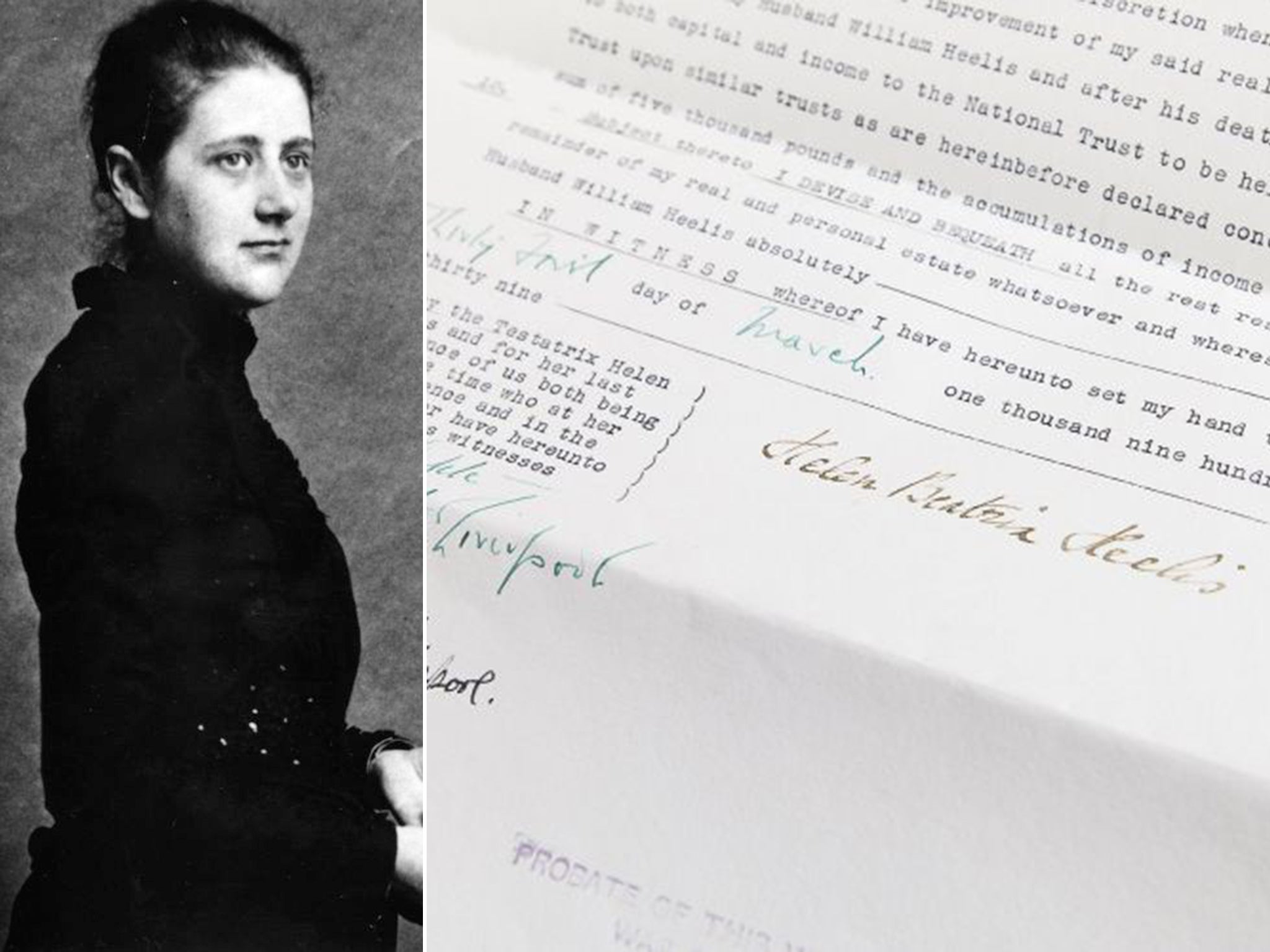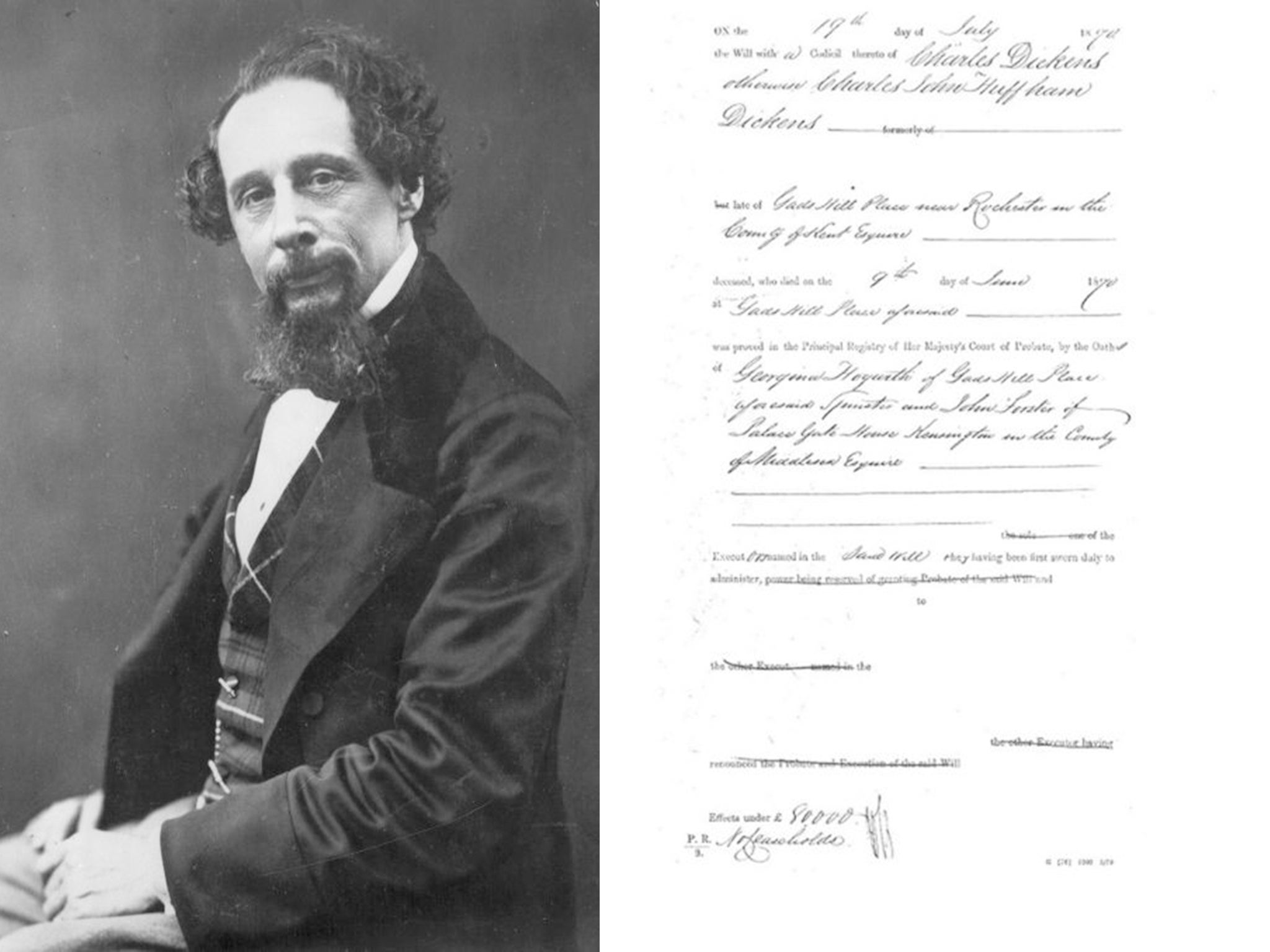New digital archive will allow public to view wills of historic names
History buffs can search wills from the past 150 years

Your support helps us to tell the story
From reproductive rights to climate change to Big Tech, The Independent is on the ground when the story is developing. Whether it's investigating the financials of Elon Musk's pro-Trump PAC or producing our latest documentary, 'The A Word', which shines a light on the American women fighting for reproductive rights, we know how important it is to parse out the facts from the messaging.
At such a critical moment in US history, we need reporters on the ground. Your donation allows us to keep sending journalists to speak to both sides of the story.
The Independent is trusted by Americans across the entire political spectrum. And unlike many other quality news outlets, we choose not to lock Americans out of our reporting and analysis with paywalls. We believe quality journalism should be available to everyone, paid for by those who can afford it.
Your support makes all the difference.From George Orwell, who insisted all his manuscripts be preserved, to Charles Dickens who wanted no memorials put up to his life, history buffs can now explore the wills of some of the most influential figures of the past 150 years at the click of a mouse.
The Government today announced it had digitised its archive of 41 million wills registered in England and Wales, dating back to 1858, allowing people to also research their own families.
Among them are the last wishes of Prime Minister Sir Winston Churchill, economist John Maynard Keynes, who wanted his unpublished manuscripts and personal papers destroyed, and war time code breaker Alan Turing. Turing, who died of cyanide poisoning in 1954 and whose story was recently adapted for the big screen in The Imitation Game, left a brief will sharing his possessions equally among a group of colleagues and his mother.
In his will, Dickens stipulated that there should be no monuments put up to him, instead “I rest my claims to the remembrance of my country upon my published works”.
When he died he left about £80,000, worth more than £7m in today’s money.
AA Milne, creator of Winnie the Pooh, left a share of future royalties and copyright to a London club after he died in 1956, as well as his alma mater, Westminster School.
People will be able to search the database to find out more about their relatives as well as the last wishes of some of the most famous and influential figures going back well over a century.

HM Courts and Tribunals Service masterminded the project, calling in digital data storage group Iron Mountain, as part of the drive to “open up public services,” it said. Courts Minister Shailesh Vara said the scheme “provides us with insights into the ordinary and extraordinary people who helped shape this country, and the rest of the world”.
The public will now be able to search the database of wills from their home, rather than needing to visit the probate registry to search the archives in person. It will still take 10 working days to receive an electronic copy after requesting a specific will. This will cost £10. Phil Greenwood, commercial director of Iron Mountain, said the size of the archive was “both humbling and impressive” adding: “Every will among the 41 million is a precious historical document that can provide remarkable insight into generations of lives lived and lost.”
The move to digitise the database of wills follows the department’s digitising of the archive of soldiers’ wills, from 1850 to 1986, last year.
The first phase saw more than 2 million searches of the site that digitised wills including 230,000 of the soldiers who died on the front line during the First World War.
In 2010, ancestry.co.uk released 6 million Victorian and early 20th century wills.
The National Archives also carries the documents, with some dating from as far back as the 14th century.
Join our commenting forum
Join thought-provoking conversations, follow other Independent readers and see their replies
Comments